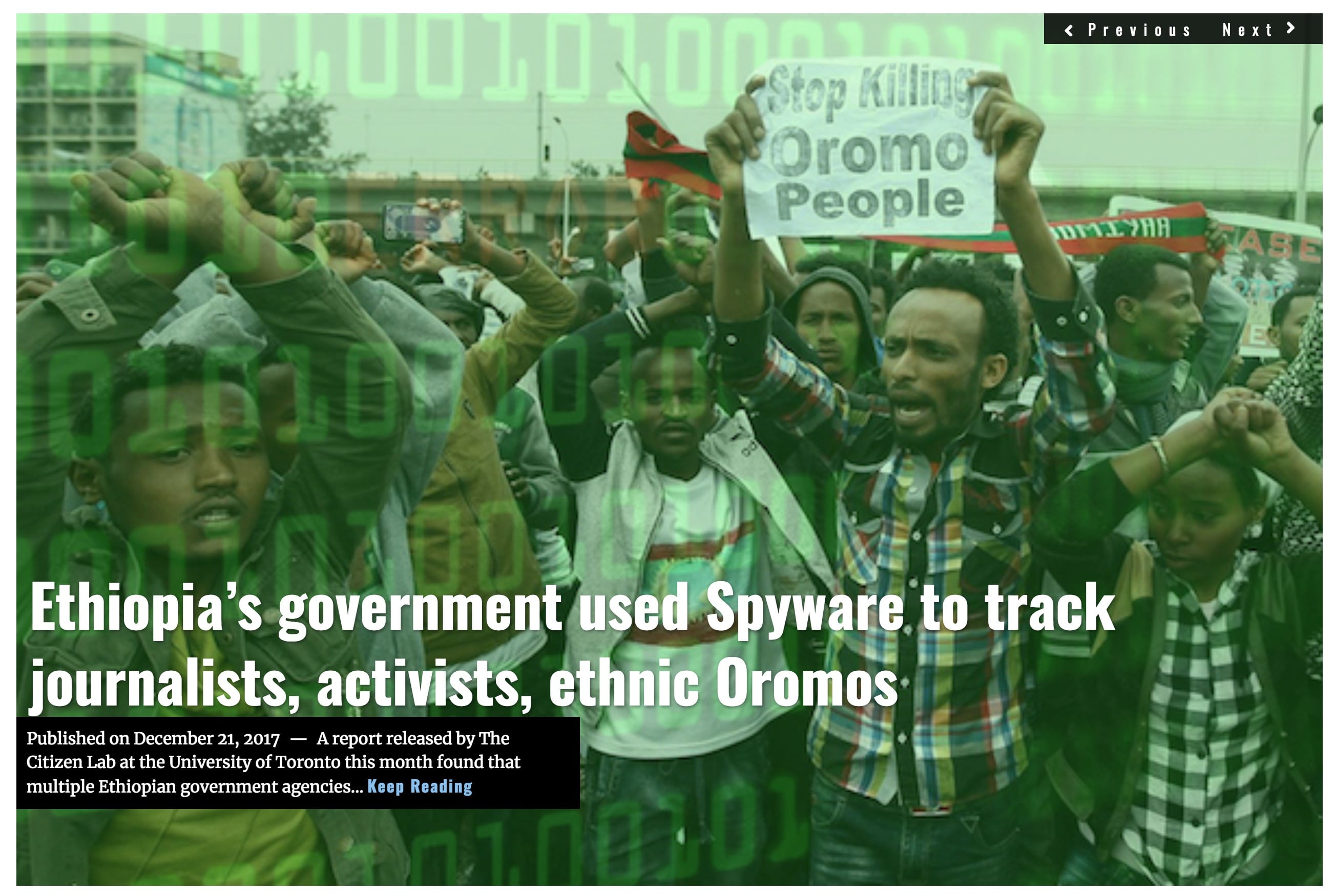Last month it looked like Ethiopia had escaped from its cycle of political and ethnic unrest, when it moved to release political prisoners and close a notorious detention facility. However, on Thursday Ethiopia implemented a state of emergency, which signals a return to the policies of the last ten months’ state of emergency which ended in August.
On February 15th, Ethiopia’s Prime Minister Hailemariam Desalegn resigned, citing “unrest and a political crisis.”
The prime minister had been attempting to de-escalate the political crisis, releasing more than 6,000 prisoners in the last month, however, he said the resignation was “vital in the bid to carry out reforms that would lead to sustainable peace and democracy.”
The de-escalation hit a bump last week, when the Oromia region once again erupted into youth protests and a three-day strike was declared. The protesters were demanding the immediate and unconditional release of all the prisoners.
#Ethiopia – A crowd in Kaliti prison, waiting for the release of political prisoners pic.twitter.com/iKzCpiFhB5
— Addis Gazetta (@addisgazetta) February 14, 2018
“I think the pressure from the popular movements and also the reformist members of the ruling coalition forced the resignation to come early,” said Befekadu Hailu, an Ethiopian writer and activist.
The declaration of the state of emergency was made by the Council of Ministers, Ethiopia’s government cabinet, which is comprised of politicians belonging to the Ethiopian People’s Revolutionary Democratic Front (EPRDF), the ruling coalition of parties in Ethiopia.
Details trickling in re: #Ethiopia's six-month-long state of emergency:
– Parliament will meet in 15 days to approve it.
– The country will be under a military command post during the SOE.
– It will be extended by four months if security situation doesn't improve. https://t.co/iwL39Be87t— Mohammed Ademo (@OPride) February 17, 2018
In a statement released Saturday, the U.S. State Department said it “strongly disagree[d]” with the government’s decision to impose a state of emergency, “that includes restrictions on fundamental rights such as assembly and expression.” DOS added that it “undermines recent positive steps toward creating a more inclusive political space, including the release of thousands of prisoners.”
U.S. Embassy Statement on the Ethiopian Government's Declared State of Emergency https://t.co/fUJdSy7O2m
— U.S. Embassy Addis (@USEmbassyAddis) February 17, 2018
[Title image: Supporters of Bekele Gerba, secretary general of the Oromo Federalist Congress (OFC), chant slogans to celebrate his release from prison. Photograph: Tiksa Negeri/Reuters]
LIMA CHARLIE NEWS
Lima Charlie provides global news, insight & analysis by military veterans and service members Worldwide.
For up-to-date news, please follow us on twitter at @LimaCharlieNews
In case you missed it:
Last month it looked like Ethiopia had escaped from its cycle of political and ethnic unrest, when it moved to release political prisoners and close a notorious detention facility. However, on Thursday Ethiopia implemented a state of emergency, which signals a return to the policies of the last ten months’ state of emergency which ended in August.
On February 15th, Ethiopia’s Prime Minister Hailemariam Desalegn resigned, citing “unrest and a political crisis.”
The prime minister had been attempting to de-escalate the political crisis, releasing more than 6,000 prisoners in the last month, however, he said the resignation was “vital in the bid to carry out reforms that would lead to sustainable peace and democracy.”
The de-escalation hit a bump last week, when the Oromia region once again erupted into youth protests and a three-day strike was declared. The protesters were demanding the immediate and unconditional release of all the prisoners.
#Ethiopia – A crowd in Kaliti prison, waiting for the release of political prisoners pic.twitter.com/iKzCpiFhB5
— Addis Gazetta (@addisgazetta) February 14, 2018
“I think the pressure from the popular movements and also the reformist members of the ruling coalition forced the resignation to come early,” said Befekadu Hailu, an Ethiopian writer and activist.
The declaration of the state of emergency was made by the Council of Ministers, Ethiopia’s government cabinet, which is comprised of politicians belonging to the Ethiopian People’s Revolutionary Democratic Front (EPRDF), the ruling coalition of parties in Ethiopia.
Details trickling in re: #Ethiopia's six-month-long state of emergency:
– Parliament will meet in 15 days to approve it.
– The country will be under a military command post during the SOE.
– It will be extended by four months if security situation doesn't improve. https://t.co/iwL39Be87t— Mohammed Ademo (@OPride) February 17, 2018
In a statement released Saturday, the U.S. State Department said it “strongly disagree[d]” with the government’s decision to impose a state of emergency, “that includes restrictions on fundamental rights such as assembly and expression.” DOS added that it “undermines recent positive steps toward creating a more inclusive political space, including the release of thousands of prisoners.”
U.S. Embassy Statement on the Ethiopian Government's Declared State of Emergency https://t.co/fUJdSy7O2m
— U.S. Embassy Addis (@USEmbassyAddis) February 17, 2018
[Title image: Supporters of Bekele Gerba, secretary general of the Oromo Federalist Congress (OFC), chant slogans to celebrate his release from prison. Photograph: Tiksa Negeri/Reuters]
LIMA CHARLIE NEWS
Lima Charlie provides global news, insight & analysis by military veterans and service members Worldwide.
For up-to-date news, please follow us on twitter at @LimaCharlieNews
In case you missed it:












